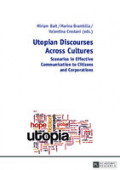
Utopian discourses across cultures :scenarios in effective communication to c…
The term Utopia, coined by Thomas More in 1516, contains an inherent semantic ambiguity: it could be read as eu topos (good place) or ou topos (no place). The authors of this volume analyze this po…
- Edisi
- -
- ISBN/ISSN
- 9783653061741
- Deskripsi Fisik
- 214 p.
- Judul Seri
- -
- No. Panggil
- 335.02 UTO u
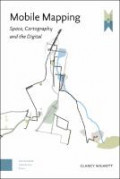
Mobile mapping :space, cartography and the digital
This book argues for a theory of mobile mapping, a situated and spatial approach towards researching how everyday digital mobile media practices are bound up in global systems of knowledge and powe…
- Edisi
- -
- ISBN/ISSN
- 9789048535217
- Deskripsi Fisik
- 348 p.
- Judul Seri
- -
- No. Panggil
- 526 WIL m
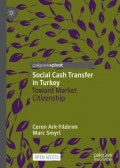
Social cash transfer in Turkey :toward market citizenship
This open access book asks whether cash-transfer programs for very low-income households promote social and economic citizenship and, if so, under what conditions. To this end, it brings together e…
- Edisi
- -
- ISBN/ISSN
- 9783030703813
- Deskripsi Fisik
- ix, 149p. : ill.
- Judul Seri
- -
- No. Panggil
- 323.6 ARK s

A cultural history of the Disneyland theme parks:middle class kingdoms
The first comparative historical study of the six Disneyland theme parks around the world in five distinct cultures: the USA, Tokyo, Paris, Hong Kong and Shanghai. Situates the parks in their respe…
- Edisi
- -
- ISBN/ISSN
- 9781789382457
- Deskripsi Fisik
- XII, 220 p.
- Judul Seri
- -
- No. Panggil
- 380.14568870 MIT a
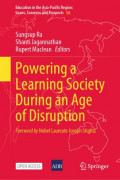
Powering a learning society during an age of disruption
This open access book presents contemporary perspectives on the role of a learning society from the lens of leading practitioners, experts from universities, governments, and industry leaders. The …
- Edisi
- -
- ISBN/ISSN
- 9789811609831
- Deskripsi Fisik
- xvii, 321p. : ill.
- Judul Seri
- -
- No. Panggil
- 374 POW p

European elites and ideas of empire, 1917-1957
Who thought of Europe as a community before its economic integration in 1957? Dina Gusejnova illustrates how a supranational European mentality was forged from depleted imperial identities. In the …
- Edisi
- -
- ISBN/ISSN
- 9781316343050
- Deskripsi Fisik
- xlviii, 344p. : ill.
- Judul Seri
- -
- No. Panggil
- 325.309409041 GUS e
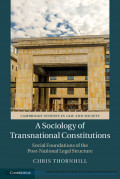
A sociology of transnational constitutions :social foundations of the post-na…
This volume focuses on the rise of transnational constitutional laws, primarily created by the interaction between national and international courts, and by the domestic transformation of internati…
- Edisi
- -
- ISBN/ISSN
- 9781139833905
- Deskripsi Fisik
- x, 520p. : ill.
- Judul Seri
- -
- No. Panggil
- 342.029 THO s
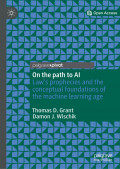
On the path to AI :law's prophecies and the conceptual foundations of the mac…
This open access book explores machine learning and its impact on how we make sense of the world. It does so by bringing together two ‘revolutions’ in a surprising analogy: the revolution of ma…
- Edisi
- -
- ISBN/ISSN
- 9783030435820
- Deskripsi Fisik
- xxii, 147p. : ill.
- Judul Seri
- -
- No. Panggil
- 006.3 GRA o
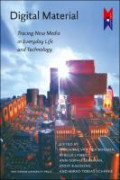
Digital material :tracing new media in everyday life and technology
Three decades of societal and cultural alignment of new media have yielded a host of innovations, trials, and problems, accompanied by versatile popular and academic discourse. New Media Studies cr…
- Edisi
- -
- ISBN/ISSN
- 9789089640680
- Deskripsi Fisik
- 303 p.
- Judul Seri
- -
- No. Panggil
- 070.4 DIG d
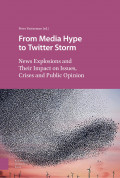
From media hype to Twitter storm :the dynamics of self reinforcing processes …
The word media hype is often used as rhetorical argument to dismiss waves of media attention as overblown, disproportional and exaggerated. But these explosive news waves, as well as - nowadays - t…
- Edisi
- -
- ISBN/ISSN
- 9789048532100
- Deskripsi Fisik
- 401p. : ill.
- Judul Seri
- -
- No. Panggil
- 070.4 FRO f
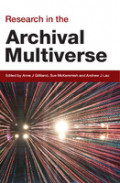
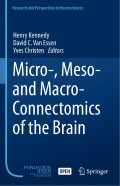
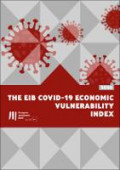

 Karya Umum
Karya Umum  Filsafat
Filsafat  Agama
Agama  Ilmu-ilmu Sosial
Ilmu-ilmu Sosial  Bahasa
Bahasa  Ilmu-ilmu Murni
Ilmu-ilmu Murni  Ilmu-ilmu Terapan
Ilmu-ilmu Terapan  Kesenian, Hiburan, dan Olahraga
Kesenian, Hiburan, dan Olahraga  Kesusastraan
Kesusastraan  Geografi dan Sejarah
Geografi dan Sejarah